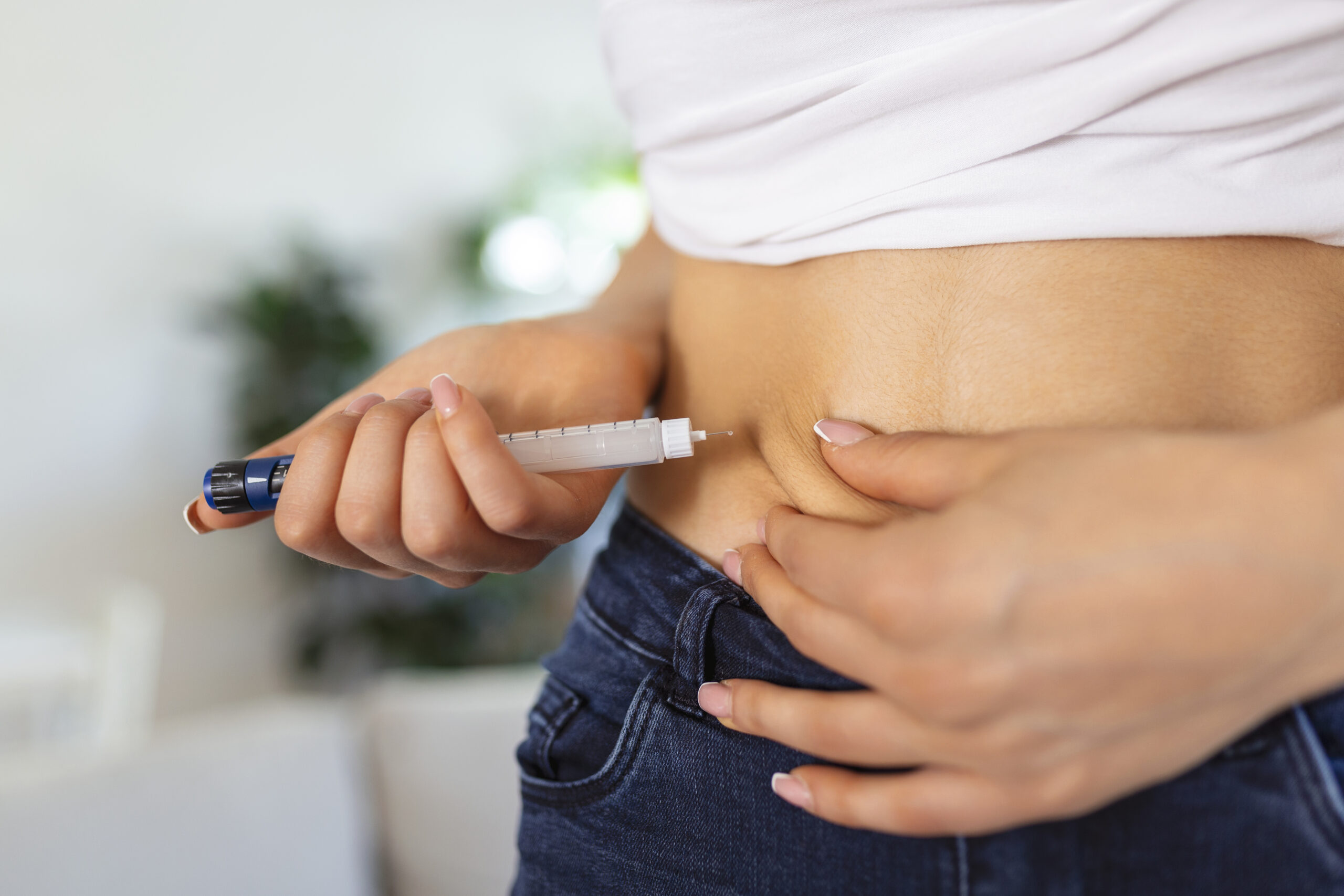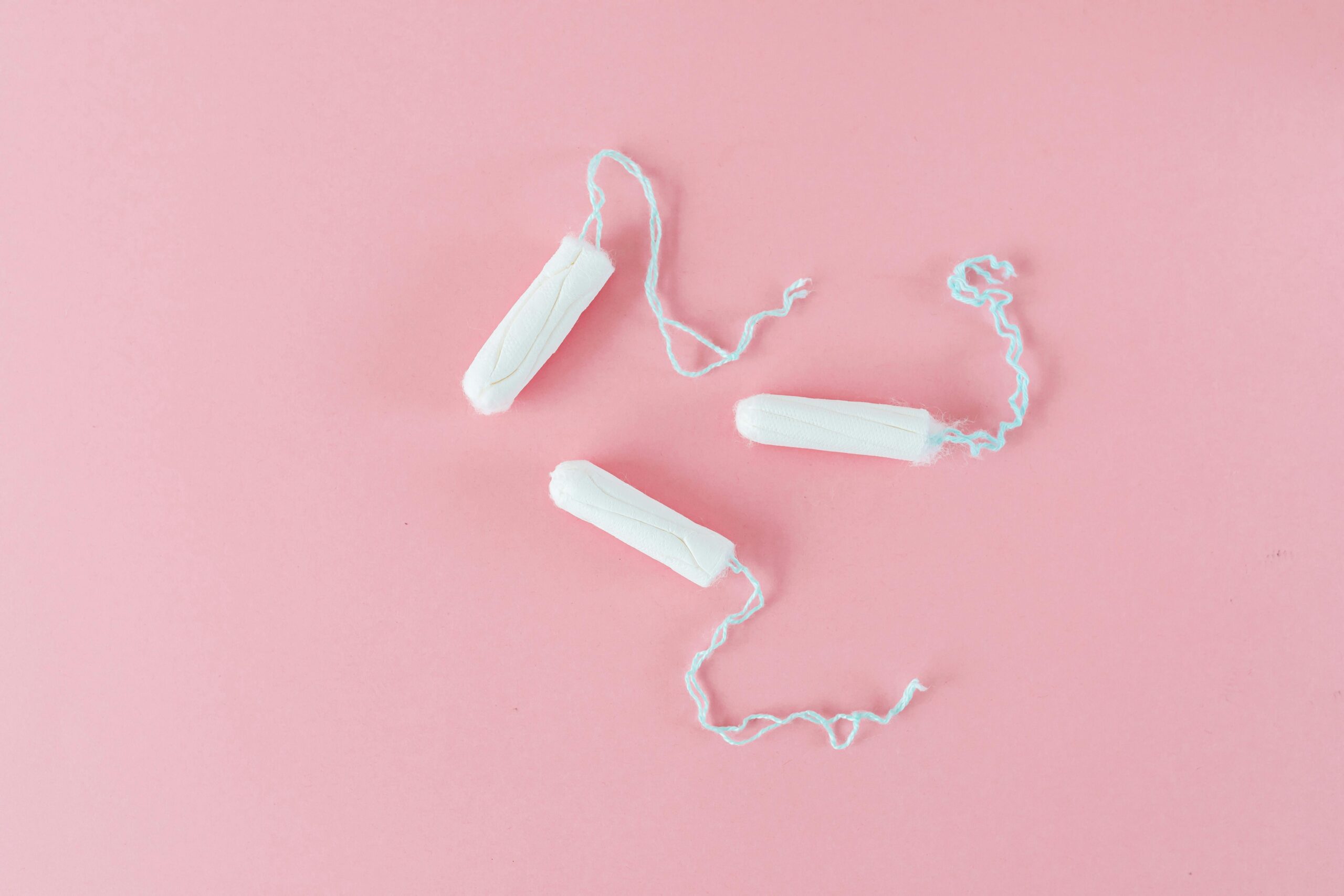
Anorexia and the effect on your period
In this article
What's the lowdown?
Anorexia is a mental health condition and eating disorder that leads to dangerously low body weight
This low weight can disrupt the brain’s hormonal system that controls your menstrual cycle, often causing periods to become irregular, delayed, or stop altogether.
Anorexics can experience delayed, irregular or the complete cessation of periods
The good news is that restoring a healthy body weight often helps bring periods back and rebalances your hormones
What is anorexia?
Anorexia (medically referred to as anorexia nervosa) is an eating disorder. It is classed as a mental health disorder but can have serious physical health implications as well. One of the ways it can affect the body is by disrupting your menstrual cycle1.
People with anorexia have really low body weight which can result from eating very little, exercising excessively, using laxatives, or making themselves sick (a behaviour also seen in bulimia). When the body doesn’t get enough fuel, it goes into starvation mode, which can lead to serious health problems.
There are many possible reasons someone might develop anorexia, often linked to a distorted body image, low self-esteem, or pressure to look a certain way.
Anorexia is more common in young women but it can also affect people of any gender and age.
At The Lowdown, we’re a safe, supportive, and non-judgemental space. If you’re struggling with anorexia or have concerns about how it’s affecting your periods, we’re here to help you find the information and support you need.
What is amenorrhea?
Not everyone with anorexia stops having periods. While missing three consecutive periods (secondary amenorrhoea) used to be a diagnostic sign, this is no longer required. People with anorexia may have regular, irregular (oligomenorrhoea), or no periods at all2.
- Secondary amenorrhoea happens when someone who has been menstruating regularly stops getting periods for three months.
- Primary amenorrhoea is when someone has not started periods by age 15, or within three years of their breasts beginning to develop, and can be because anorexia began before puberty.
Even if your weight is very low, you might continue to bleed normally or have oligomenorrhea (prolonged unpredictable cycles).
Your menstrual cycle is a vital sign of overall health. If periods become irregular or stop, it can mean your body is under stress and needs support. Don’t ignore what your cycle is telling you—talk to a healthcare professional if you notice changes.
Anorexia and missed periods
The extremely low body weight seen in anorexia puts the body into a state of starvation, which can disrupt the normal function of the hypothalamic-pituitary-adrenal (HPA) axis, the system that helps regulate hormones and the stress response. When the body is under this kind of stress, it produces more of the hormone cortisol, which can interfere with the release of gonadotropin-releasing hormone (GnRH). GnRH is the hormone that kickstarts the chain of events that leads to ovulation and menstruation 3.
When GnRH levels drop, it leads to lower levels of two other key hormones: luteinising hormone (LH) and follicle-stimulating hormone (FSH). These hormones are essential for the growth of ovarian follicles, which in turn produce oestrogen. Without enough oestrogen, ovulation doesn’t occur. And without ovulation, there’s no surge in progesterone, which means the body doesn’t go through the usual cycle that ends in a period. In short, the hormonal chain breaks down, ovulation doesn’t happen, and periods stop.
How do I get my period back after anorexia?
The good news? Getting back to a healthy body weight can help restore your menstrual cycle to its normal pattern. One study found that when body weight reached around 92% of what’s considered normal for a person’s height, periods often started again4. However, recovery isn’t always immediate or the same for everyone. It can take time for your hormones to rebalance, so be patient with your body as it heals.
Anorexia and fertility
When the body isn’t ovulating regularly, or at all, it can make it difficult to get pregnant. That’s because ovulation (the release of an egg) is essential for fertilisation and a pregnancy to happen.This is one reason why your period is such an important sign of reproductive health.
The positive news is that with the right treatment and healthy weight restoration, periods often return, and so does fertility. One study found that, with proper care, anorexia doesn’t usually have a long-term impact on a woman’s fertility5.
Can anorexia cause early menopause?
There isn’t much definitive research linking anorexia directly to early menopause, but it’s a complex area requiring more research. What we do know is that long-term hormonal disruption from anorexia, especially if periods stop for several years, may affect ovarian function over time. However, this doesn’t necessarily mean it will lead to early menopause.
A family history of early menopause is a known risk factor, so your genetics may also play a role in determining when menopause occurs6.
If you’re concerned about your menstrual cycle or fertility, it’s worth discussing this with your doctor. They may suggest checking hormone levels to get a clearer picture.
How is anorexia treated?
Recovery from anorexia is possible, but it’s important to recognise that it’s not always a straightforward journey. Treatment often takes time and involves support from multiple healthcare professionals, including doctors, dietitians, and mental health specialists.
A key part of treatment is talking therapy, which helps you explore and challenge negative thoughts around food, body image, and self-worth. This can help you build a healthier relationship with eating and with yourself1.
Anorexia can also be linked to other mental health conditions, like anxiety or depression, and in some cases, medication may be offered to help manage these symptoms alongside therapy.
Because anorexia is a serious and complex condition, it needs a specialist, compassionate approach. If you’re worried about yourself, or someone you know, please reach out. Your GP is a good place to start. You can also call Beat’s free, confidential eating disorder helpline on 0808 801 0677 to speak to someone who understands.
Our medical review process
This article has been medically reviewed for factual and up to date information by a Lowdown doctor.






